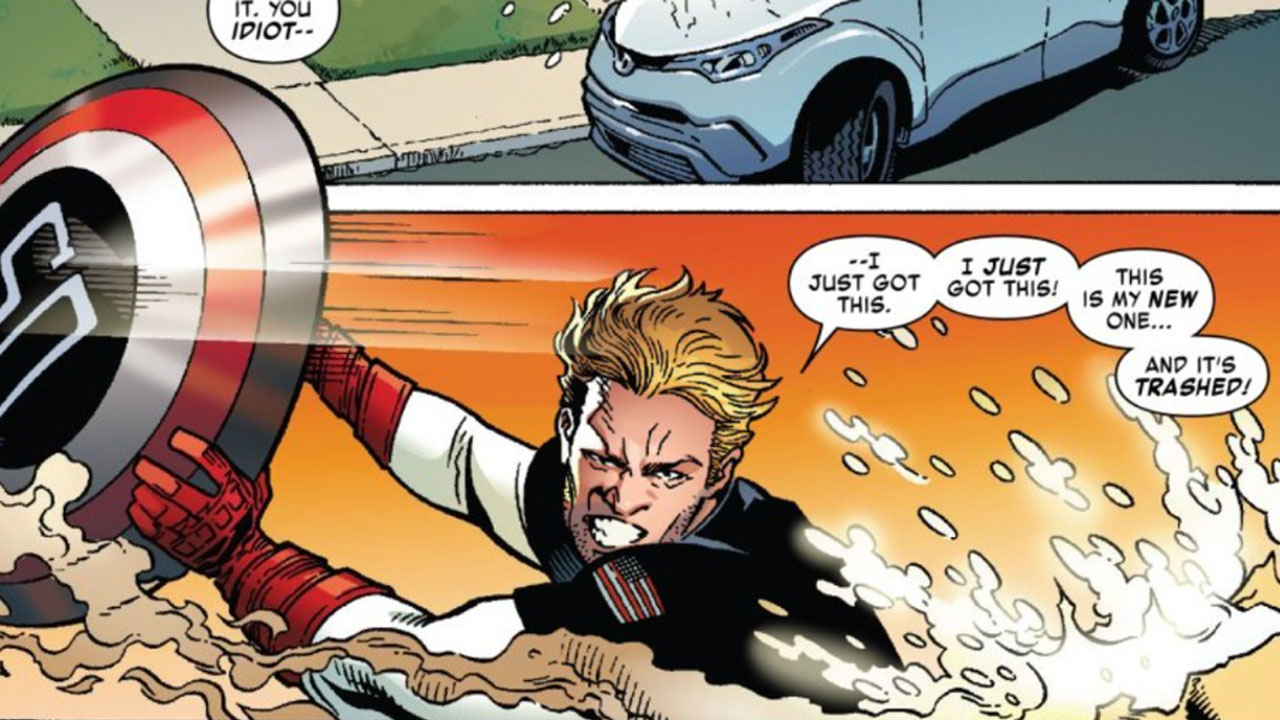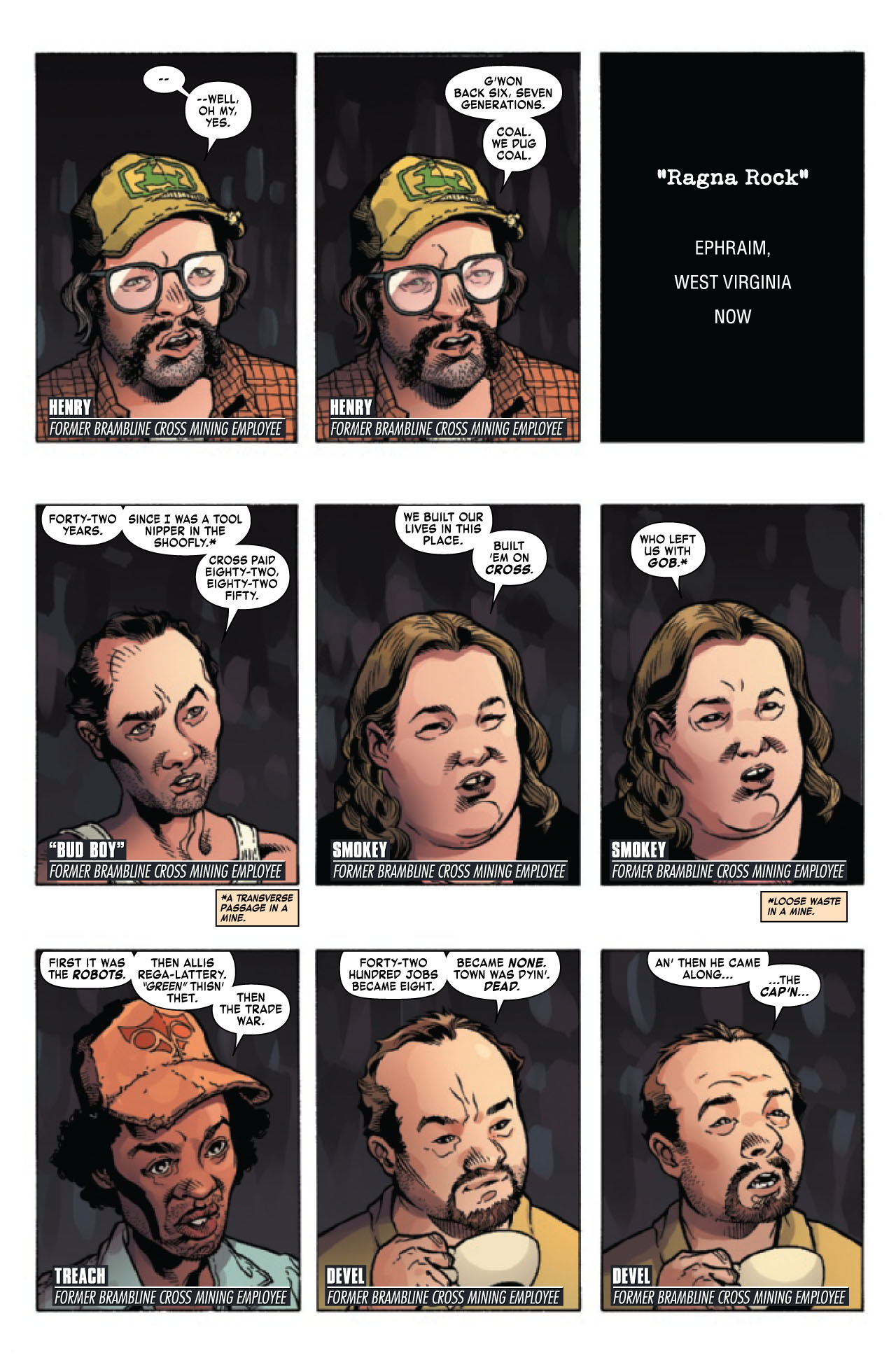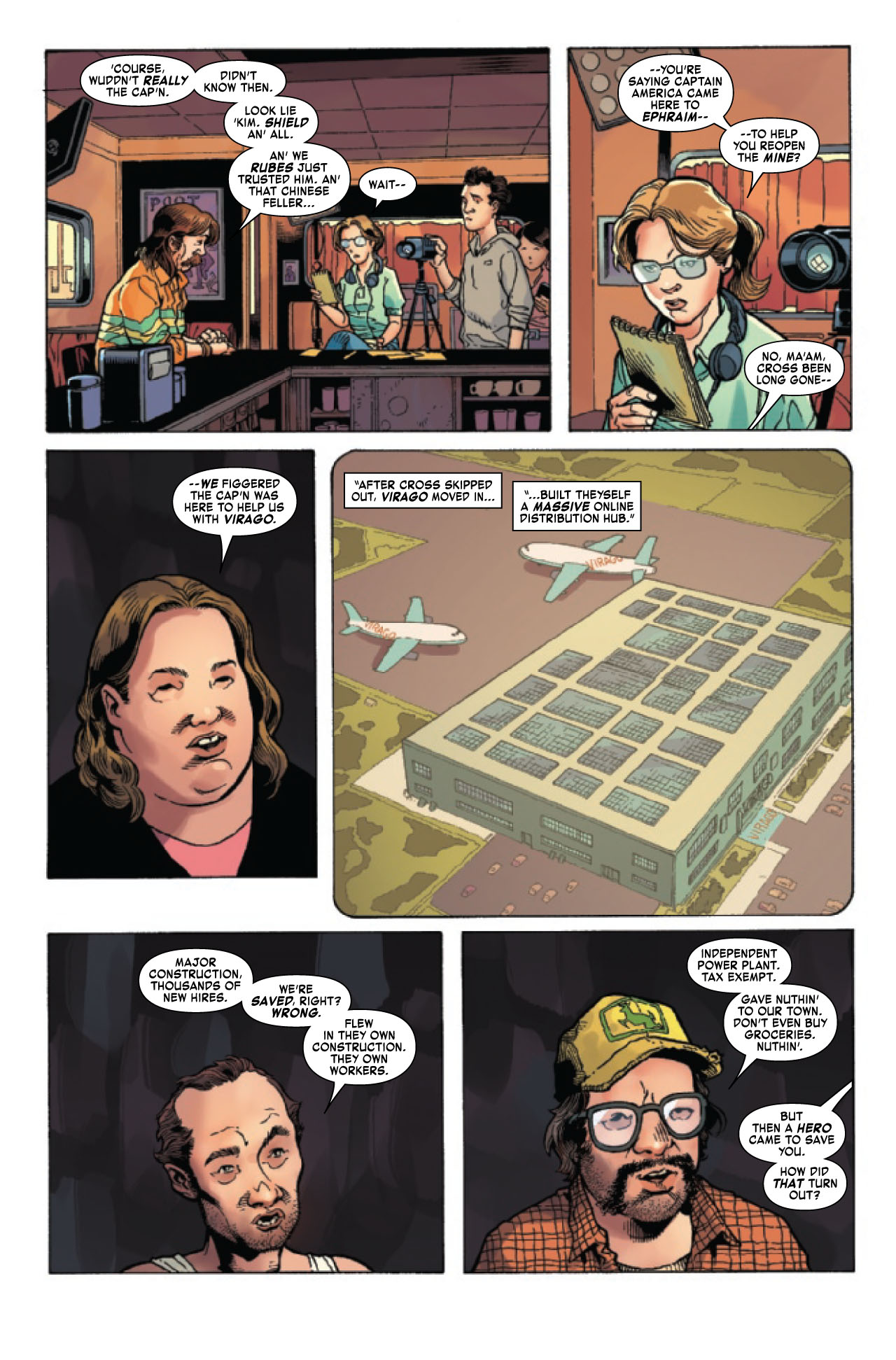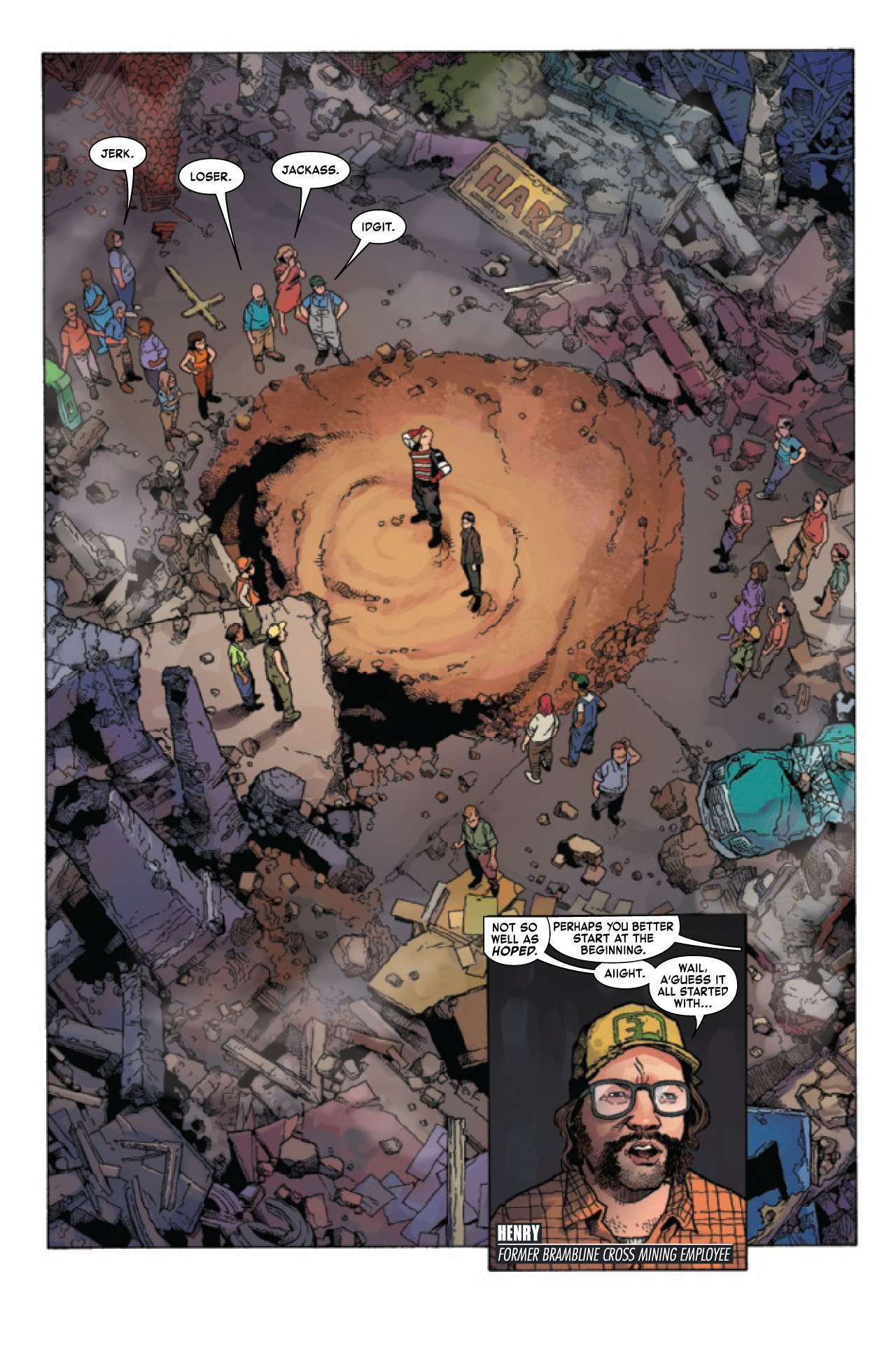Best Shots review: US Agent #1 "misses the mark"
The one-time Captain America gets a solo spotlight in US Agent #1

Readers of a certain age might have been first introduced to U.S. Agent as a secret playable palette swap of Captain America in Marvel Super Heroes vs Street Fighter, but the character has kicked around Marvel Comics for longer than that. And this new series comes with some interesting timing.
To reference Marvel's Distinguished Competition, Captain America might be the hero we need but U.S. Agent is the hero we deserve. John Walker is Cap's brash, dumb, antithesis, and could present an interesting challenge for a writer like Priest.
Written by Priest
Art by Georges Jeanty, Karl Story, and Matt Milla
Lettering by Joe Sabino
Published by Marvel Comic
'Rama Rating: 5 out of 10
But U.S. Agent #1 doesn't really gel for the writer. Positioning Walker as a kind of conservative mercenary, Priest never really elevates the character past being a bad Captain America cosplayer with a gun. On some level, that's the point, right?
Step 1. Portray American conservative fanaticism in a poor light.
Step 2. ????
Step 3. Profit
The problem is that I'm projecting there. U.S. Agent could be a scathing treatise on American conservatism. It could be about so many things that might make it feel relevant. But Priest's aim is scattershot. Are we supposed to laugh at the southerners that lost their coal mining jobs to a tech corporation? Does the existence of Chinese pizza guy Morrie enable Priest to force us to reckon with Walker's casual racism? Is Walker's connection to the government going to lead to a meditation on the value of labor and human lives to the U.S. government? No. It's just kind of none of these things.
Get the best comic news, insights, opinions, analysis and more!

Priest uses Morrie to write a few low-hanging jokes. Walker isn't an introspective enough character for his actions to feel like they mean very much to him or other characters. There's no point of view present in this work which feels odd when we're talking about a writer of Priest's caliber. But maybe the writer feels hamstrung by the times we're living in. He just about says as much in an interview with Newsarama from earlier this week:
"I wonder what the difference is between, say, John Walker and Dave Chappelle. People pay a lot of money to go sit in a theater and watch Dave smoke, which no characters can do in comics anymore because somebody somewhere actually thinks comic books are read exclusively by children. There's a lot of decisions being made for the industry by people who are not in the industry but who have influence on or control over the industry.... Dave Chapelle is going to be Dave Chapelle. He is going to offend somebody. But, ironically, the people in his audience seem to accept that; that's the social contract when you go to see Dave. If you're thin-skinned, if you take a comedian seriously, you really should find other entertainment for the evening."
It's a faulty premise because the difference between Dave Chappelle and John Walker is that one has an audience of people who care deeply about his art and subsequently, his views. Now does Priest consider himself the Dave Chappelle of comic books? That's hard to say and something I can't measure. I haven't heard Priest's jokes.

U.S. Agent #1 preview



Georges Jeanty joins Priest to provide the art for this book and vacillates between awkward ugly renderings and some legitimately gorgeous ones. The main difference between these pages is quite plain to see. Contrast, contrast, contrast. When inker Karl Story is able to block out large swathes of the page with heavy blacks, colorist Matt Milla can really get to work providing interesting lighting and color palettes. But elsewhere, a sickly yellow that finds its way on too many pages only highlights Jeanty's poorer renderings and facial expressions. The layouts are not particularly inventive or exciting and the nine-panel grid feels more like a crutch than a meaningful technique.
At this point in his career, Priest feels like the kind of writer who is just giving excuses for not being at his best. He speaks more eloquently about his thoughts behind the title for this limited series, 'American Zealot,' than anything that we see in the actual work. And in that same interview, he laments not being able to do an Adult Swim U.S. Agent book because even the stuff writers did with the character in the '80s and '90s "simply won't fly anymore." U.S. Agent is a character who could be so specifically relevant to the times we're living in but this book just misses the mark.
Pierce Lydon has been a contributor to Newsarama for over 10 years, writing everything from reviews to deep dive explainers, to interview pieces and best lists.


